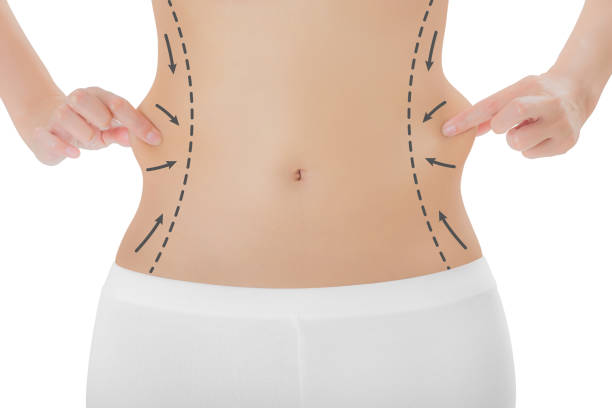Recovering from any surgical procedure requires careful attention to various factors, and nutrition plays a crucial role in this healing process. For patients undergoing Lipo Abdominoplasty Surgery(عملية شفط الدهون وشد البطن في الرياض), understanding how diet impacts recovery can significantly improve outcomes and promote faster healing.
The Role of Nutrition in the Healing Process
Good nutrition is the foundation for the body’s ability to repair tissues and regain strength after surgery. Proper nutrients provide the building blocks necessary for cell regeneration, collagen production, and immune system support. Failing to consume a balanced diet during the recovery phase can slow wound healing, increase infection risk, and lead to prolonged discomfort.
Why Nutrition is Essential After Lipo Abdominoplasty in Riyadh
Lipo Abdominoplasty in Riyadh combines liposuction with a tummy tuck, involving both fat removal and skin tightening. Due to the nature of this procedure, the body undergoes significant trauma, making nutrition especially vital. Patients need to focus on consuming foods rich in protein, vitamins, and minerals to support the regeneration of skin and underlying tissues.
Protein: The Building Block for Tissue Repair
Protein plays a pivotal role in healing since it supplies amino acids critical for collagen synthesis. Collagen is a structural protein that strengthens the skin and connective tissues affected during surgery. Including lean meats, poultry, fish, legumes, and dairy in meals supports effective tissue repair and reduces the chances of complications.
Vitamins and Minerals: Boosting Immunity and Healing
Certain vitamins such as C and A, and minerals like zinc, serve important functions in wound healing and immune response. Vitamin C enhances collagen formation and helps control inflammation. Vitamin A supports skin integrity and cell differentiation. Zinc contributes to tissue repair and fights infections. Including fruits, vegetables, nuts, and seeds ensures these micronutrients are available throughout recovery.
Hydration: A Critical Yet Often Overlooked Aspect
Staying hydrated is essential to maintain blood flow, flush out toxins, and support cellular functions during recovery. Water also helps reduce swelling and promotes softer scar formation by keeping skin hydrated. Patients should prioritize drinking sufficient fluids daily, avoiding dehydrating beverages like caffeine and alcohol.
Foods to Avoid Post-Surgery for Better Results
Some foods can interfere with healing by increasing inflammation or hampering immune function. Highly processed foods, sugary snacks, fried items, and excessive salt intake can worsen swelling and delay tissue repair. Reducing intake of such foods encourages the healing environment inside the body and supports the surgical outcomes of Lipo Abdominoplasty.
How Balanced Meals Contribute to Energy and Mood
Recovering from surgery requires extra energy, and balanced meals provide sustained fuel for the body. Complex carbohydrates, healthy fats, and protein help maintain stable blood sugar levels, which in turn can reduce mood swings and fatigue during the healing process. Eating regularly in well-portioned meals also prevents nutrient deficiencies and supports overall wellness.
Practical Nutrition Tips for Recovery After Lipo Abdominoplasty
-
Prioritize Protein: Include a source of protein in every meal to support ongoing tissue repair.
-
Eat Colorful Fruits and Vegetables: Aim for a variety to get a broad spectrum of vitamins and antioxidants.
-
Maintain Fluid Intake: Drink water consistently throughout the day to avoid dehydration.
-
Limit Inflammatory Foods: Stay away from processed snacks and salty foods to reduce swelling.
-
Plan Small, Frequent Meals: Smaller portion sizes help digestion and nutrient absorption during recovery.
-
Consult a Nutritionist: Personalized advice can help tailor dietary needs to individual healing requirements.
The Psychological Benefits of Good Nutrition During Recovery
Healing from surgery isn’t just physical; good nutrition also impacts mental well-being. Balanced meals and proper nutrient intake improve energy levels and boost mood. This can reduce anxiety and promote a more positive mindset, helping patients stay motivated during their healing journey. Feeling physically stronger often correlates with increased confidence and reduced surgical stress.
When to Seek Nutritional Support Post-Surgery
If healing is slow, wounds show signs of infection, or patients experience fatigue beyond normal, consulting healthcare professionals for nutritional support is important. In some cases, supplements or specialized diets may be recommended to correct deficiencies and optimize recovery. Early intervention can prevent complications and encourage timely healing.
Long-Term Nutritional Habits for Maintaining Surgical Results
Adopting healthy eating habits after full recovery helps preserve the benefits of Lipo Abdominoplasty in Riyadh over time. Maintaining a balanced diet reduces the likelihood of fat accumulation and skin laxity returning, supporting a toned and sculpted abdomen. Incorporating regular exercise alongside good nutrition further enhances long-term body contouring effects.
Frequently Asked Questions
What are the best protein sources to eat after Lipo Abdominoplasty surgery?
Lean meats, fish, eggs, dairy products, legumes, and plant-based proteins provide essential amino acids needed for skin and tissue repair.
How does vitamin C help with healing after surgery?
Vitamin C supports collagen synthesis, reduces inflammation, and assists immune function, all crucial for effective wound healing.
Can dehydration affect recovery from Lipo Abdominoplasty?
Yes, dehydration slows down cellular functions, increases swelling, and can lead to harder scar tissue formation.
Are there any specific foods to avoid after Lipo Abdominoplasty?
It’s best to avoid processed foods, excess salt, sugary snacks, and fried items as they increase inflammation and delay healing.
How soon after surgery can I resume normal eating habits?
Typically, patients can return to regular balanced meals soon after surgery, but it’s important to start with nutritious, easy-to-digest foods and follow medical advice.
Is it necessary to take vitamin or mineral supplements during recovery?
Supplements may be recommended if dietary intake is insufficient or if specific deficiencies are identified by healthcare providers.









